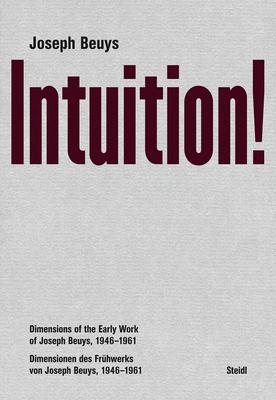How Beuys combined his political, scientific, spiritual and artistic concerns into a compelling vision of "social sculpture"
This book examines the crucial period between Joseph Beuys' (1921-86) return to his hometown of Kleve after World War II at the age of 24 and his appointment as a professor at the Kunstakademie Dsseldorf in 1961. During this "incubation" phase, key themes relevant to his future work emerged, which structure this book: biography as material for artistic formation; poetry/romanticism; natural sciences: physics, chemistry, botany, zoology and geography; philosophy/anthropology and Steiner; economics, capitalism, labor, politics. The aim of this book, along with the 2021 exhibition of the same name at Museum Kurhaus Kleve for which it is the catalog, is neither to venerate a local saint of Kleve nor to topple an artist from an earlier generation. Instead it highlights the influences and ideas that saw Beuys develop from a "sensitive traditionalist" into a "visionary social sculptor."
